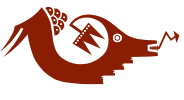Archaeology’s Place in Healing and Reconciliation: Reclaiming the Indigenous Paleolithic of the Western Hemisphere
- Associate Professor in Sociology–Anthropology at Algoma University in Sault Ste. Marie, Ontario
- Canada Research Chair in Healing and Reconciliation
About the lecture
Archaeologists have denied the early histories of Indigenous Peoples on Turtle Island for over a century. The commonly held archaeological theory frames the First People as recent immigrants to the Americas, having arrived only about 12,000 years ago. Yet, in many oral traditions, Indigenous people say that they have been here since time immemorial.
Links to ancestors, homelands, identities, and history are essential to all people, to their health, healing, and well-being. For people who have survived attempted genocide, erasure of their histories, denial of their ancestral links to the land, and forced assimilation, it is vital to their health and well-being to reclaim their histories and connections to the land. Reclaiming history is a path of revival and healing, a detour off a colonial road to extinction, a journey from a painful past to a future of growth and renewal. Knowing and discussing links to homelands across time and space, family, identity, and culture are fundamental human rights. Based on evidence from over 22 years of research and an extensive database of archaeological sites in the Western Hemisphere dating before 12,000 years-ago, this discussion will weave paths to reviving, reclaiming, healing, and reconciliation.
About the presenter
Dr. Paulette Steeves (Cree-Metis), was born in Whitehorse Yukon Territories and grew up in Lillooet, British Columbia, Canada. She is an Associate Professor in Sociology – Anthropology at Algoma University in Sault Ste. Marie, Ontario, a Canada Research Chair in Healing and Reconciliation, and author of The Indigenous Paleolithic of the Americas, published on July 1, 2020, by University of Nebraska Press. Her research focus is on the Pleistocene history of the Western Hemisphere, reclaiming and rewriting Indigenous histories, and healing and reconciliation.
Dr. Steeves' research argues that Indigenous peoples were present in the Western Hemisphere as early as 130,000 years ago, and possibly much earlier; and, by countering Western narratives of Indigenous histories, critical Indigenous issues such as sovereignty, self-determination, healing and reconciliation are addressed. Rewriting and un-erasing these histories becomes a part of healing, transforming public consciousness, and confronting and challenging racism. Long standing academic denial of this deep Indigenous past fosters racism and discrimination among the general population, and re-writing Indigenous histories, framed through Indigenous knowledge, will create discussions that counter this.

Free For Everyone
Our virtual lectures are a part of our Outreach and Education efforts. They are free to our Members and the General Public. Recorded lectures are posted on YouTube and on the event page after the event occurs.
For questions about the event or how to register, please contact Susan Bowdoin ([email protected]) or Sarah Webber ([email protected]).



